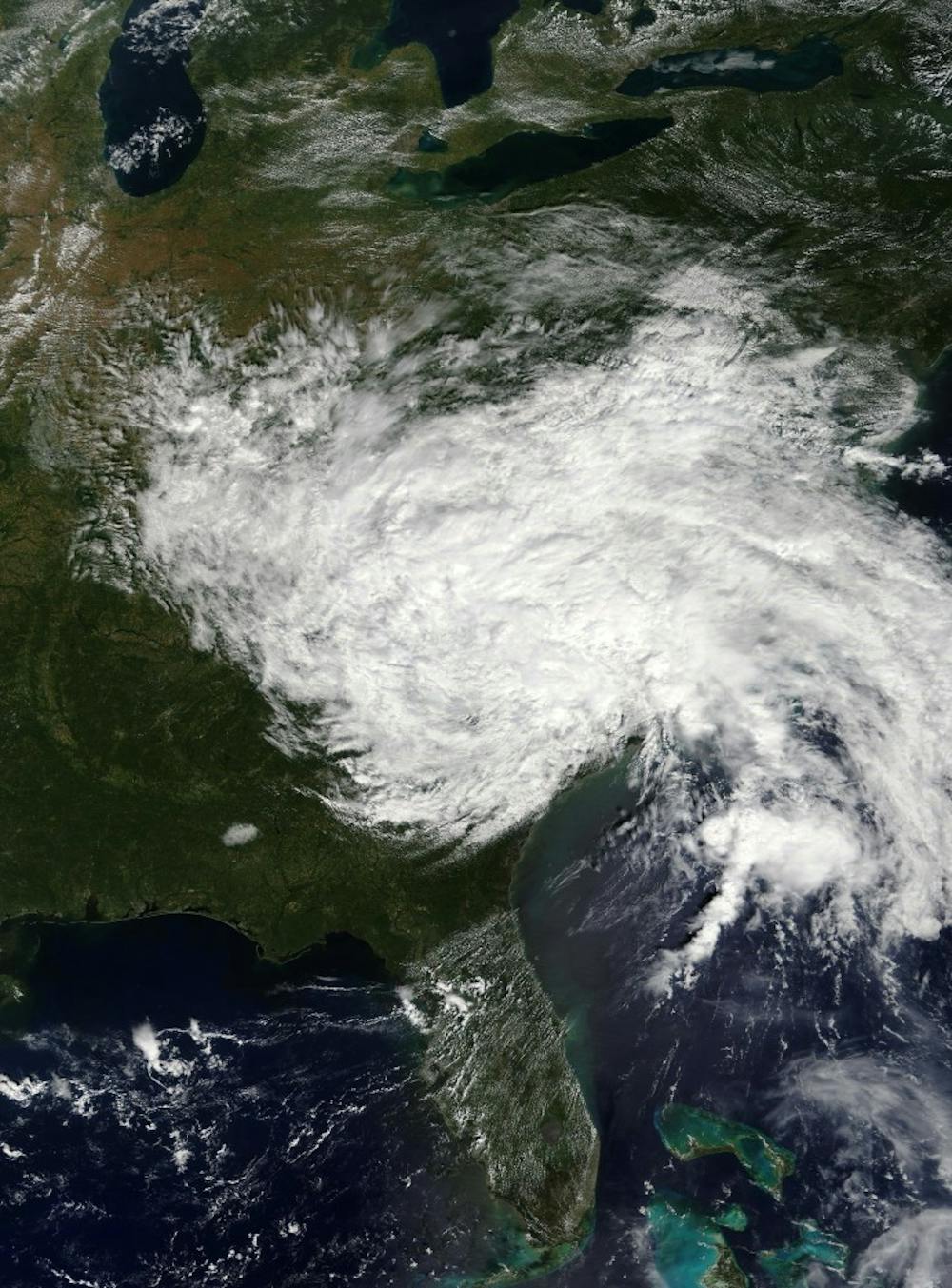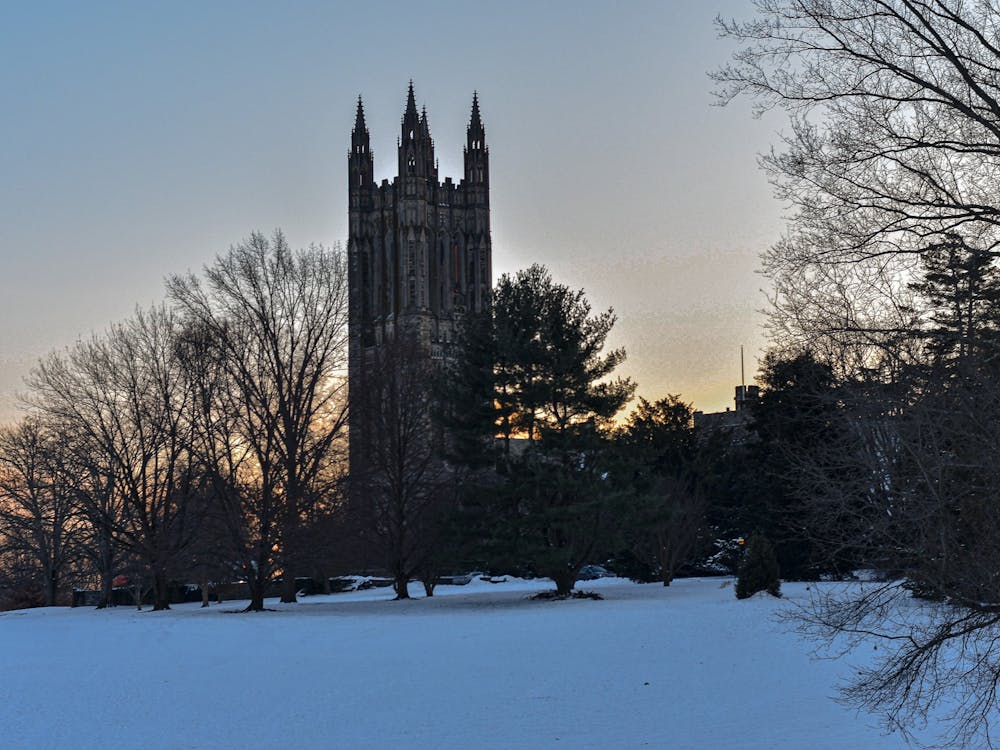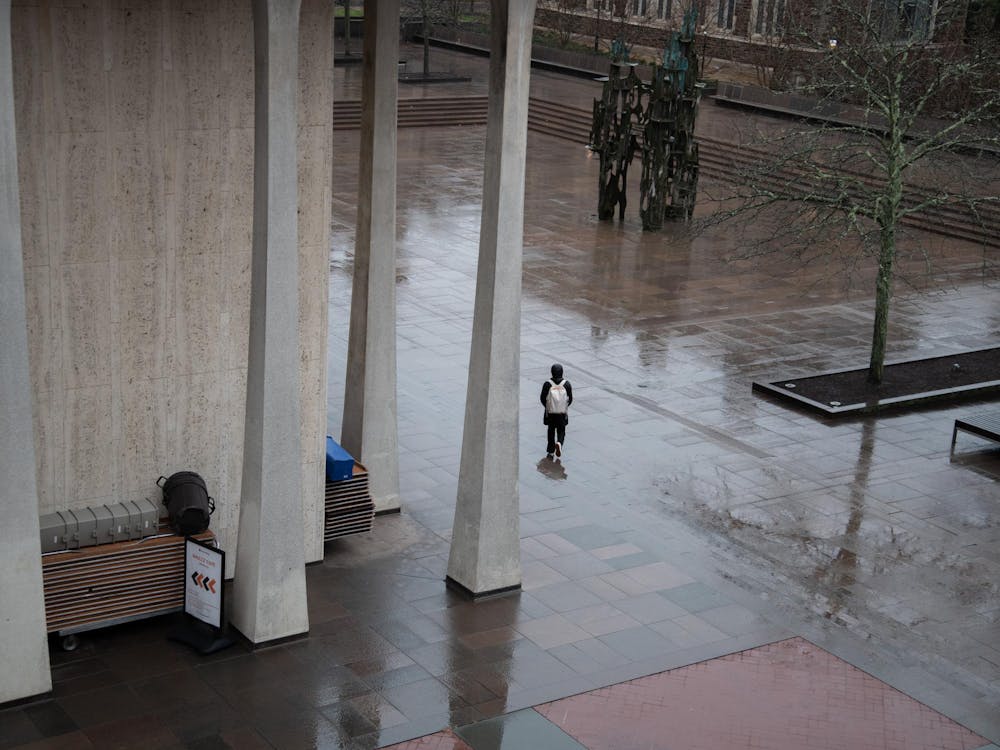After wreaking havoc in the Carolinas, Hurricane Florence continued to move north into the tri-state area as a “low-pressure system,” bringing with it the rain that hit Princeton yesterday afternoon. Given recent heavy rainfall in the area, Princeton could see some flooding, but it’s not predicted to be dangerous according to NJ Advance Media.
“People in the area should watch out for flooding in their basement,” warned University geosciences professor Gabriel Vecchi, who specializes in extreme weather events and hurricane activity.
Commenting on the widespread concern that hurricanes are getting worse as a result of global warming, Vecchi cautioned people not to oversimplify the factors behind Hurricane Florence, which has left at least 31 people dead, including a baby, according to The New York Times.
“One of the key questions is, ‘Are there more hurricanes or does it just seem like more hurricanes?’” he said. “As someone who studies the field, it’s not yet clear whether hurricane activity in the Atlantic has increased in frequency, or if we just have better recordings as time goes on.”
Vecchi explained that because hurricanes have been happening long before recorded history began, any data we have on hurricane frequency is too recent and too dependent on technological innovations to indicate a change in hurricane activity.
He added that scientists do expect tropical storms to become wetter as global warming continues since warmer air holds more water. He also talked about the relationship between sea level rise and storm impacts.
“The sea level has been rising,” explained Vecchi, “and one of the hotspots for sea level rise is the Mid-Atlantic, meaning that Virginia and the Carolinas are seeing more [storms] than other places.”
The most obvious cause for rising sea levels are the melting ice caps, but Vecchi also said that the Mid-Atlantic’s hotspot status has been thousands of years in the making.
“For the past 10,000 years, our continental plate has been rebounding off an ice shelf in Canada, so the East Coast is still settling,” Vecchi explained. “It’s like someone jumping off a canoe: When the person jumps, the canoe moves away from the direction they jump in.”
Even if the hurricanes themselves do not become more severe, the rising sea levels will cause the storm surges from the hurricanes to worsen. This explains why the Mid-Atlantic was particularly vulnerable to Hurricane Florence’s storm surge and subsequent flooding.
Although Princeton won’t experience Hurricane Florence as anything else than a couple of days of rain, the University community has been directly impacted by the storm.
Many students’ hometowns have been affected, and still more students have friends and family in the areas hit by the hurricane.

“The storm has passed, but it’s almost like the worst part of the storm is happening now because of the flooding,” said Colton Casto ’21. Casto is from Wilmington, N.C., a city that has been cut off from the rest of the state by the flooding.
Casto’s family lives about five miles inland and was able to make it through the storm safely. His family is now dealing with the aftermath of the hurricane.
“We haven’t had power for two or three days now, and we have pumps in the basement. But because of shortages we’re running out of gasoline, and soon we won’t have anything to power the generator that’s powering those pumps,” Casto said. “I don’t know if my home will be the same.”









